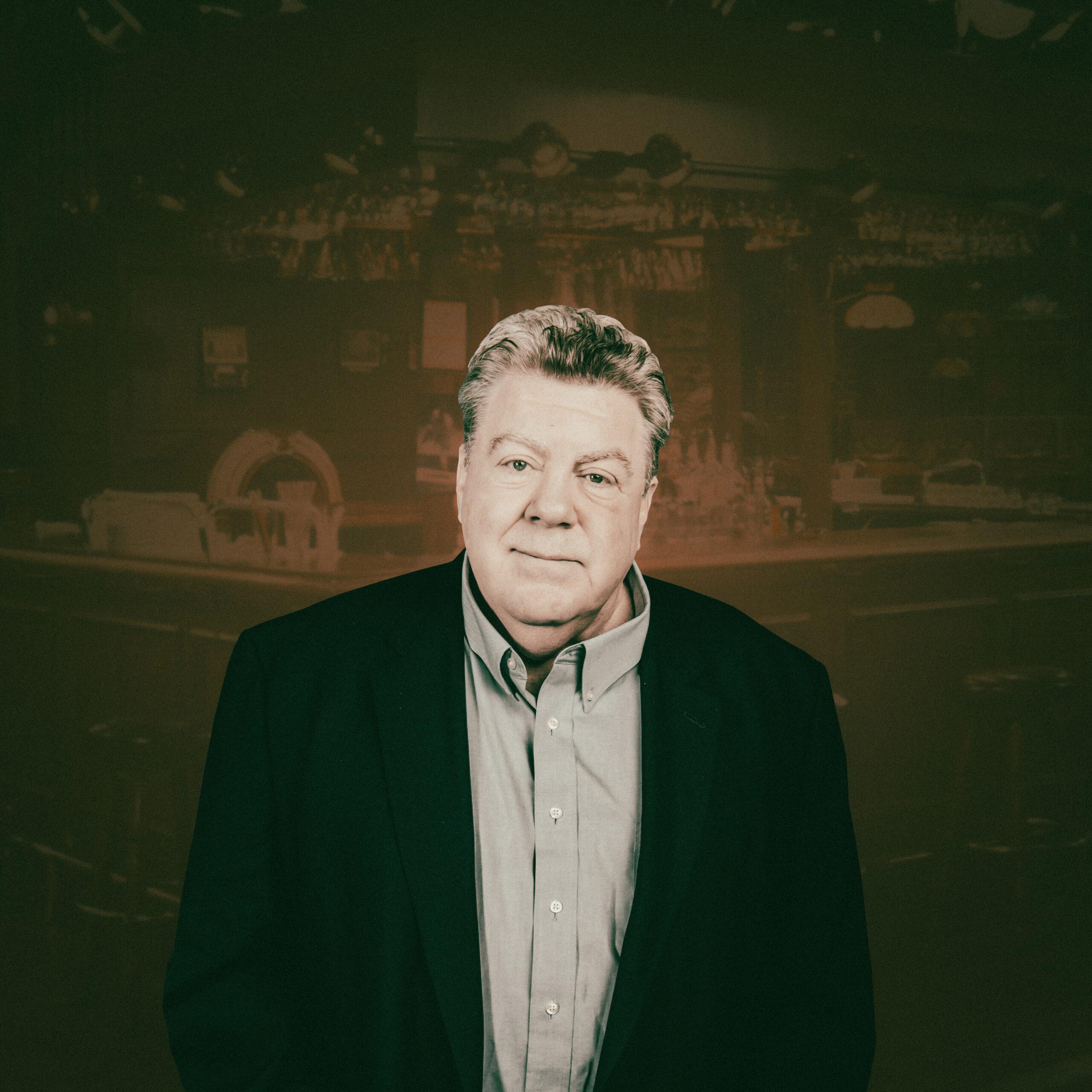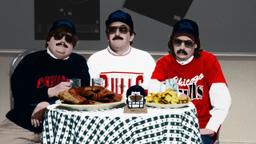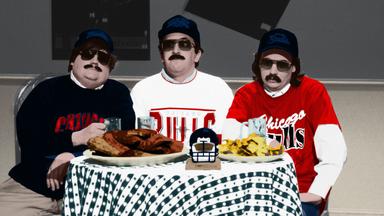Sitcom writers have always leaned on big guys for laughs. Over the past, oh, century, these supporting characters have been portrayed as some combo of lazy, inept, slobbish, or evil. Newman on Seinfeld, Chief Wiggum on The Simpsons, Jerry Gergich on Parks and Recreation.
There was, of course, an antidote to that tradition. His name was Norm Peterson. On Cheers, he was the curly-haired big guy who got his own special introduction. Whenever he marched into the bar, everyone yelled, “Norm!” And after Sam Malone greeted him, he usually delivered the funniest line of the episode.
Sam: “What are you up to, Norm?”
Norm: “My ideal weight if I were 11 feet tall.”
Sure, it’s a fat joke. But there’s only one person at Cheers who could’ve said it without sounding like a prick. Norm was a self-deprecating, warm, lovable wiseass. A big guy to laugh with, not at. Kind of like the man who played him.
From the moment he heard about the part, George Wendt knew he was right for it. “My agent said, ‘It’s a small role, honey. It’s one line. Actually it’s one word.’ The word was ‘beer.’ I was having a hard time believing I was right for the role of ‘the guy who looked like he wanted a beer,’” Wendt joked in Brian Raftery’s 2012 GQ oral history of the series. “So I went in, and they said, ‘It’s too small a role. Why don’t you read this other one?’ And it was a guy who never left the bar.”
Wendt, who died on Tuesday at 76, didn’t just play that guy. He was that guy. “I have a hard time talking about Norm,” he told The Baltimore Evening Sun in 1989. “It’s like he’s too close to me.” During Cheers’ 11-season run, Wendt received six consecutive Emmy nominations. He was someone America—especially middle-aged men—identified with. Even though, as Rolling Stone’s Alan Sepinwall pointed out in his obituary, Wendt hadn’t even turned 34 when Cheers premiered on NBC in 1982, Norm seemed older, wiser, and more endearingly stubborn than his age.
“I don’t think he’s changed over the years,” Wendt once said. “They moved him from being an accountant to painter and decorator, but that was basically for some storylines. He’s still the same Norm. I think he’s the toughest to write for because he’s not really anything. He’s just funny.”
That, Wendt understood, was what made his character so likable. Despite his lousy marriage and awful job, Norm still had a sense of humor. It was his way of dealing with life’s disappointments. Well, that and beer.
On TV, Wendt played a Boston guy. But in real life, he was a Chicago guy. The South Side native’s first job in show business was unglamorous: sweeping the floors at Second City. Eventually, he started taking improv classes there, and in the mid-’70s he joined the troupe as a performer. By the beginning of the ’80s, he was booking small roles on shows like Taxi, Soap, and M*A*S*H.
Cheers made Wendt famous, but he never forgot his hometown. That was clear when he hosted Saturday Night Live on May 18, 1991. In one sketch that evening, he starred as Bob Swerski—filling in for his “brudder” Bill, who was recovering from a “dreadful heart attack”—next to Robert Smigel, Mike Myers, and Chris Farley. Becoming one of the “Da Bears!” guys was Wendt’s destiny. “They were gross caricatures of guys that I knew,” Wendt told me in a 2018 interview. To him, there was only one of them who wasn’t quite believable: “Mike Myers was clearly from Canada. As a matter of fact, I thought we oughta do a sketch where we outed him. He was a good sport. He was also very funny in it, too.”
All of a sudden, Wendt had a second-most famous character. Seven months after SNL, Wendt, Farley, and Smigel were invited to Soldier Field for Chicago’s wild-card playoff game against Dallas. At halftime, they put on a little show on the field. At one point, Wendt took a pitch from Smigel and ran the ball into the end zone. “Then I head-butted Farley,” he said. “But we didn’t have helmets on. That was a poor choice on my part.”
Wendt spent three decades playing Bob Swerski: on SNL, at Bulls championship celebrations, in commercials, and at the ESPY Awards. “I did the first ESPYs with George,” Smigel, who created the sketch, once told me. “We were sort of Statler and Waldorf. They parked us in a corner on the stage on a set that looked like our basement or something. We would just make Greek chorus comments about how the show was going.”
For a while, Smigel and Bob Odenkirk were working on a “Super Fans” movie script. After Farley died in 1997, they shelved it. “When he passed, the project didn’t make sense anymore,” Wendt said. “It’s sad.”
Over the past 40 years, Hollywood never stopped calling Wendt. He racked up dozens of TV and movie credits, playing memorable roles in everything from Fletch to Outside Providence to The Larry Sanders Show to Portlandia to the music video for Michael Jackson’s “Black or White.”
Some actors who play icons eventually want to leave them behind for good. But Wendt didn’t seem to mind keeping Norm alive. He brought him back several times for TV guest spots, including on The Simpsons, Family Guy, and Cheers spinoff Frasier. By then, Wendt probably had a hunch that America had long since stopped separating him from his alter ego. All the way back in 1983, a year after Cheers’ debut, an interviewer asked him how many people had told him that they knew a guy just like Norm at their local bar. Without missing a beat, Wendt deadpanned, “Seven hundred and twenty-three.”
Everyone did know a guy like Norm, someone who would respond to the question “What’d you like, Normie?” with “A reason to live. Give me another beer.” He could be miserable, but he could also make the bar a happier place. And for that reason, you never wanted him to leave.




